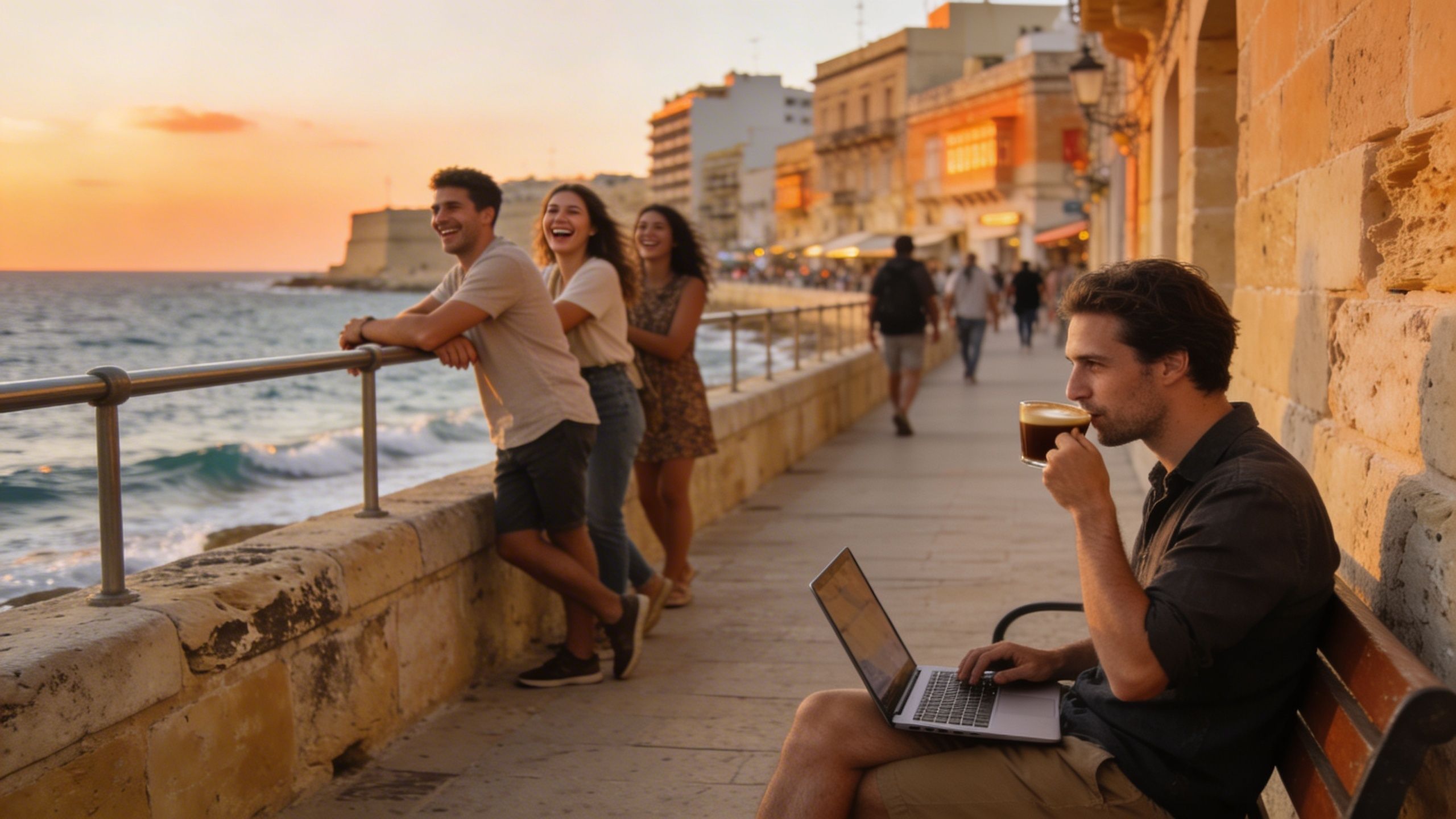Why Winter House‑Hunting in France Works
Why winter viewings in France often reveal better value, faster negotiations and the true day‑to‑day — backed by INSEE, Arcep and coworking market data.
Imagine stepping out at 9 a.m. to buy a croissant on Rue Cler in Paris, then signing a contract in a quiet notaire’s office before lunch — without the summer crush, without rushed viewings. France is famous for its sunlit summers and Riviera fantasies, but the smartest buyers I know arrive in winter. You see calmer neighbourhoods, better negotiating room and clearer market signals. Recent market analysis shows price gaps by season and region — and that quiet months often equal opportunity.
Living the French life — slower, tastier, more local

Picture daily rhythms in France: small boulangeries serving warm pain au chocolat, markets where fishmongers call your name, and evenings that stretch with wine and conversation. From Paris’s Marais to Bordeaux’s Chartron and Marseille’s Cours Julien, streets have personalities — cafes where neighbours debate football, lanes where architects restore old stone facades, and parks where families gather on Sundays. That atmosphere isn’t marketing copy; it’s how neighbours actually live, and it changes with the seasons. For a nomad seeking a routine, that texture of life is the real property benefit.
Paris & Île‑de‑France: layered histories and compact daily life
Walk the 5th at dawn and you’ll feel the city’s density and history vibrating underfoot. Parisian neighbourhoods are expensive and differentiated — from the quiet of Canal Saint‑Martin to the polished avenues of the 7th. INSEE data shows clear price separations between dense urban cores and rural areas, so the street you pick matters as much as the city. For remote workers, micro-location (walkability, cafes, coworking close by) often beats raw square metres.
South of France & alpine towns: seasonal personalities
Provence villages and Côte d’Azur towns live in seasons: lavender and markets in summer, hushed lanes and lower prices in winter. Alpine resorts swing from packed chalets to quieter local life outside high season. Luxury developments in ski towns skew prices skyward, but off‑season buyers find motivated sellers and less tourist competition. If you want a terrace with a view or a walkable village life, think beyond the peak photos and into the quieter months.
Making the move: practical steps that match the lifestyle

Dreaming is the fun part. Then reality arrives: visas, viewings, notaires and internet speeds. France has long‑stay and talent routes that suit remote professionals and creatives, but the application timelines and documentation take planning. Start with the visa type that matches how you’ll live — remote work, employment, entrepreneurship or retirement — and line up a local agency that knows both lifestyle and legal steps.
Property types that fit a nomad’s day-to-day
Choosing between a compact Parisian apartment, a stone village house in Dordogne or a terrace villa in Aix affects daily life. Apartments win on walkability and cafes; village houses offer outdoor space and a slower pace; coastal villas give that endless sea commute. Think in terms of workspace: a bright corner for long calls, a nearby coworking or reliable café, and a fast broadband connection. Those living features are often more decisive than an extra bedroom.
Working with agencies that speak lifestyle, not just listings
Find agencies that do more than show properties: they introduce you to boulangeries, local councils, and the best telecom operator for your street. Local experts will pull DVF sales data, map recent price movements and point to neighbourhood-level amenities. Ask an agency for recent comparable sales (they should reference DVF or notaire data) and for contacts at local coworking spaces so you can test the rhythm of life before committing.
Insider knowledge: winter advantages, hidden costs and cultural tips
Here’s the blunt truth: summer viewings hide real daily life. Winter visits reveal commuting flows, café habits, and whether the neighbourhood truly supports remote work. Coworking rollouts outside Paris accelerated recently, making regional cities friendlier for nomads. And broadband matters — Arcep data shows rapid fiber rollout, but quality varies locally. Check physical fiber availability (not just advertised speeds) and ask neighbours or your agent about connection reliability.
Cultural speed bumps and friendly hacks
Speaking French helps — but you can get by with basics and a good agent. Expect paperwork rhythms that feel slower than you’re used to: appointments, notaires, and council registrations follow local etiquette. Small towns value face time; in Paris, brisk professionalism rules. Learn simple phrases, bring printed documents to meetings, and plan for at least one season of adaptation before expecting to feel settled.
- Lifestyle highlights to test in any season
- Morning market run at Marché d’Aligre (Paris) or Cours Saleya (Nice)
- An afternoon coworking trial in Bordeaux’s Chartrons or Lyon Confluence
- A winter walk on Nice’s Promenade des Anglais to watch off‑season life
Quick, actionable checklist (blends lifestyle + process)
- 1. Visit in low season: book 3–5 viewings across different times of day to feel real life. 2. Ask for DVF comparables and a neighbourhood fibre check from the agent. 3. Try a coworking day to test acoustics, internet and the local community. 4. Budget for season-specific costs (heating in older homes, winter maintenance in alpine areas). 5. Confirm visa timeline on France‑Visas and line up notarisation appointments early.
Conclusion: France rewards people who slow down. If you want the Paris pastry mornings, the Provençal markets or the Alps at your doorstep, winter house‑hunting often reveals the honest, lived‑in version of a place — and better negotiating space. Start with a low‑season visit, line up an agency that lives the lifestyle, and verify visa and broadband realities before you sign. Then, picture your first morning coffee in the exact street you chose — and enjoy how ordinary life here becomes extraordinary.
Dutch investment strategist guiding buyers to Greece and Spain; practical financing, tax, and portfolio diversification.


